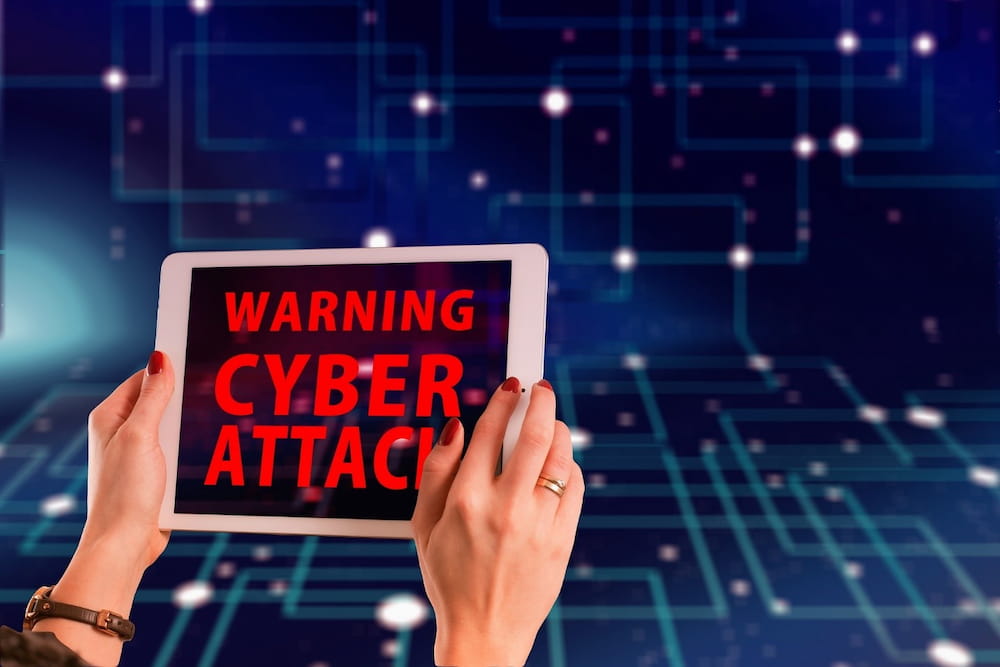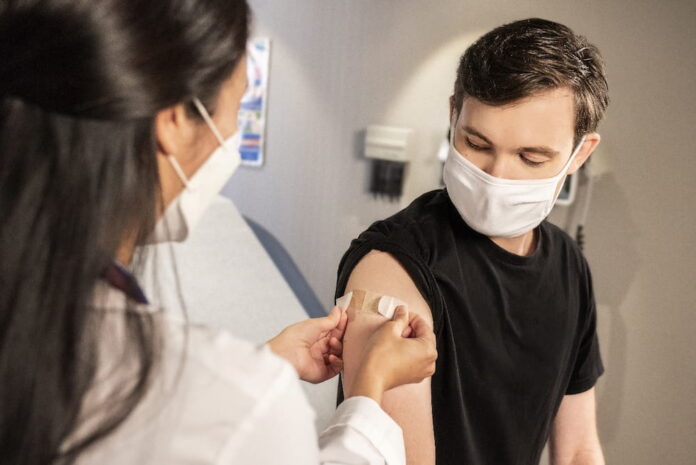When it comes to handling health information, you need to be especially careful. The Health Insurance Portability and Accountability Act was designed with this in mind. It’s one of the reasons why nurses have a reputation as some of the best professionals when it comes to protecting patient information. But there are many things that even experienced healthcare professionals don’t know about HIPAA compliance and how it can affect them.
In this article, we’ll cover five tips about HIPAA compliance and uncover what you need to know if you’re a nurse who wants to ensure their patients’ medical records are protected at all times. You can also use the HIPAA compliance checklist pdf for a quick reference of all the things you need to consider when it comes to protecting patient information. Here are the top tips on HIPAA compliance for nurses.
Understanding What Constitutes PHI:
Knowing the definition of PHI is a good place to start when it comes to understanding what constitutes protected health information (PHI). According to the U.S. Department of Health and Human Services Office for Civil Rights, “protected health information” is individually identifiable health information that has been created or received by a HIPAA-covered entity (like your hospital) and that relates to your past, present, or future physical or mental health or condition; the provision of health care to you by a HIPAA covered entity; or your past, present, or future payment for the provision of health care to you by a HIPAA covered entity.
Your medical records should always be treated as confidential data and not shared with any non-employees without written consent from you. Be sure that only authorized personnel access these records and that they are stored in accordance with industry standards for security measures and disposal practices.
Securing Electronic Devices:
The most important tip is to secure your electronic devices. Whether you’re using a laptop, tablet, or smartphone – if it holds sensitive data, you must protect it.
– Use a password manager such as LastPass or 1Password. Don’t use the same password for multiple accounts, and don’t share your passwords with anyone.
– Don’t leave your devices unattended so someone can access them while they are not being used by you – especially when they contain protected health information (PHI). If you must leave your device somewhere while working or out in public, make sure that it is locked with a passcode/password before putting it away so no one can access it without permission from you first!
– Avoid using public computers or public WiFi hotspots like at Starbucks, where anyone could potentially monitor traffic going through these networks (both wired and wireless connections) which could lead to breaches of privacy laws regarding user data content, including PHI itself – especially if someone has installed malware on those machines beforehand!
This means making sure that all network connections are secure before logging into any sensitive websites, such as those containing PHI records held within databases belonging to privately owned systems like those maintained by healthcare organizations.
Reporting The Inappropriate Disclosures:
As you may have noticed, the main point of compliance is to protect patient privacy. However, one of the hardest parts about complying with HIPAA is knowing when and how to report a breach of protected health information (PHI).
In order for organizations like yours to be compliant with HIPAA, it’s important that you know what constitutes a breach of PHI.
Once you figure out whether or not there has been an incident that warrants reporting, go ahead and report it! Reporting will help inform your organization about where they need improvement—and also prevent negative consequences from harming patients in future incidents.
Know About PHI Disposal Methods In Detail:
It is important to know about PHI disposal methods in detail because it will help you understand what needs to be done when removing electronic records, paper records, and other types of information.
Having a disposal policy in place ensures that employees adhere to the standards and protocols when disposing of patient information.
You can dispose of PHI by shredding, burning, or pulverizing it. However, the most effective method is to shred or burn the documents so that they cannot be reconstructed into readable form by unauthorized individuals.
If your organization does not have any specific policies related to how much PHI should be shredded at any given time, then your only option is to use an “all-at-once” approach where all documents are shredded simultaneously without being sorted out beforehand based on their sensitivity level which may lead towards noncompliance issues due lackadaisical attitude towards data security measures for sensitive information stored at workplace premises such as health care providers’ offices.
Protecting Your Password or Login Details.
Do not share your passwords with anyone, ever. This is a big one: if you share your password with someone and they use it to log into an account on your behalf, then anyone who knows that password can also impersonate you and access that account.
It’s much easier than you might think for someone else who knows about this relationship to get hold of the information needed to access accounts under your name.
Use unique, strong passwords for every account that requires internet access or personal information (i.e., email addresses).

Change them often! If hackers have used one compromised account as part of an attack on another system (such as getting access through social engineering), changing the password regularly can prevent them from accessing anything else while they’re still trying out old credentials in new places–and it’ll make sure that any damage done cannot be easily repaired once discovered either!
HIPAA Compliance is an important part of every nurse’s day-to-day routine.
HIPAA Compliance is an important part of every nurse’s day-to-day routine. It’s something you’ve been doing since your first day in school, and it’s something that has only become more essential as technology has made it easier for nurses to transmit information digitally.
The good news is that there are steps you can take to make sure HIPAA Compliance compliance is part of your daily routine without being a burden on yourself or others. This article has outlined the top five tips for making sure that HIPAA compliance becomes second nature for all nurses.
Final Thoughts
It’s important to remember that HIPAA compliance isn’t just a matter of following the rules. It’s also a good way to protect yourself and your patient’s privacy, as well as cut down on any unnecessary stress or anxiety. By following these tips every day, you will be able to keep your practice safe and secure while still enjoying yourself!
Read Also
- Transforming Patient Care with Professional Healthcare Transcription ServicesIn today’s fast-paced healthcare environment, the need for precise and timely documentation cannot be overstated. Accurate documentation is not merely an ancillary task; it is a core element of delivering high-quality patient care. The ability to maintain compliance with regulations, enhance operational efficiency, and ensure the integrity of patient records has never been more critical.… Read more: Transforming Patient Care with Professional Healthcare Transcription Services
- Essential Steps to Launch Your Own Optometry PracticeLaunching your own optometry practice can be a thrilling and fulfilling journey. However, it requires careful planning, dedication, and an understanding of what it takes to succeed. With the growth in demand for eye care, more and more individuals are seeking to start their own practices. But how do you get there? This guide walks… Read more: Essential Steps to Launch Your Own Optometry Practice
- Compounding Pharmacy: Personalized Medication SolutionsA compounding pharmacy plays a vital role in modern healthcare by providing customized medications tailored to the specific needs of individual patients. Unlike mass-produced drugs manufactured by pharmaceutical companies, compounded medications are prepared by licensed pharmacists who carefully combine, adjust, or modify ingredients to create a formulation that best suits a patient’s unique medical requirements.… Read more: Compounding Pharmacy: Personalized Medication Solutions
- The Best Business Decision a Surgeon Ever Made: Ordering a Medical Equipment AppraisalMost surgeons don’t go into medicine because they love spreadsheets, valuations, or negotiating buy-ins. They go into medicine because they want to operate, treat patients, and build something meaningful over time. For one surgeon, that mindset worked perfectly, until the day another surgeon decided to buy into his practice. That moment exposed a problem he… Read more: The Best Business Decision a Surgeon Ever Made: Ordering a Medical Equipment Appraisal
- Creative Approaches to Alleviating Healthcare Staff ShortagesHospitals and clinics are facing staff shortages, which makes it harder to take care of patients well. Finding simple and useful solutions is very important. Easy changes like flexible work hours, good training, and chances to grow can help staff stay happy. Technology, like online doctor visits and helpful tools, can make work easier. Smart… Read more: Creative Approaches to Alleviating Healthcare Staff Shortages
- Understanding the Role of Sterilizers in Healthcare FacilitiesHave you ever wondered how hospitals keep their equipment safe enough to use on dozens of patients every day? Most people never think about what happens behind the scenes, yet these hidden steps play a huge role in patient safety. Sterilizers are part of that system, working quietly to remove harmful germs before any instrument… Read more: Understanding the Role of Sterilizers in Healthcare Facilities







